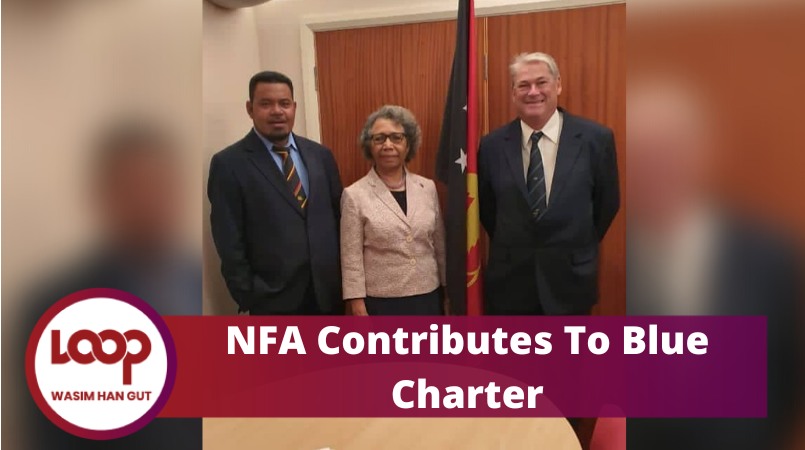
The National Fisheries Authority have contributed to the Blue Charter at the recent Commonwealth Heads of Government Meeting (CHOGM) held in Kigali, Rwanda.
The National Fisheries College Acting Principal, Dr. Jeff Kinch and Jerome Tioti represented NFA at the CHOGM.
At the 2018 CHOGM in London, the Commonwealth Heads of Government endorsed the Commonwealth Blue Charter, an agreement by all 54 Commonwealth countries to actively cooperate in solving ocean-related problems and coordinate sustainable ocean development.
The Blue Charter recognizes the importance and development of cultural values of coastal people and acknowledges the significance of the Paris Agreement's goal of keeping global average temperatures to well below 2 Degrees Celsius, above pre-industrial levels.
In December 2020, the Commonwealth Secretariat advised that PNG should consider joining one of the 10 Action Groups. PNG has worked closely with the Commonwealth Secretariat to ensure its membership in the Marine protected Areas (MPAs), and the Sustainable Blue Economy.
Other government agencies were requested to support this opportunity, notably, the Conservation and Environment Protection Authority, the Climate Change and Development Authority, the National Maritime Safety Authority and the Department of Justice and Attorney General.
Under the theme of MPAs, PNG recognizes the following marine spatial areas:
- Morgado Square — which is located in the New Ireland and is a spawning and recruitment ground for tuna and other fishery resources as per the National Gazette G436
- Torres Strait Protected Zone — which covers the southern portion of Western Province and is administered by the Torres Strait Treaty with regards to access, exploitation and quota sharing of fisheries and marine resources between PNG and Australia.
Dogleg Area- located in Western is administered as a General Fishing Area between PNG, Australia and Indonesia.
v) Conservation Areas - that have been formalised under legislation under the Conservation and Environment Protection Authority notably, the Flora and Fauna Control Act, which establishes Wildlife Management Areas.
On the theme of Sustainable Blue Economy, previous focus has been on the Green Economy, which involves improvement in sustainable agriculture development and better management of land resources.
With the growing importance of Oceans, a number of policies have been developed at global and regional levels, the most recent being the Pacific Oceanscape Framework.
In supporting this, PNG has developed and endorsed its Ocean Policy, which also has provisions for management and the sustainable use of fisheries and marine resources in PNG waters.
The Blue Economy has become prominent with the European Union, the World Bank and other agencies to use the world's Oceans to growing a Blue Economy to combat poverty and to accelerate prosperity.
The NFA through its Fisheries Management Act (as amended in 2015 and 2020) and the recently launched 10-year Strategic Plan, there is an emphasis on sustainable fisheries management and development for equitable benefits and greater participation for PNG citizens in PNG's fisheries sector.
The NFA is committed to supporting a Sustainable Blue Economy at the national, regional and global level that supports poverty alleviation and human welfare, while creating economic activities and investments that enhance local participation and protecting the marine environments.
